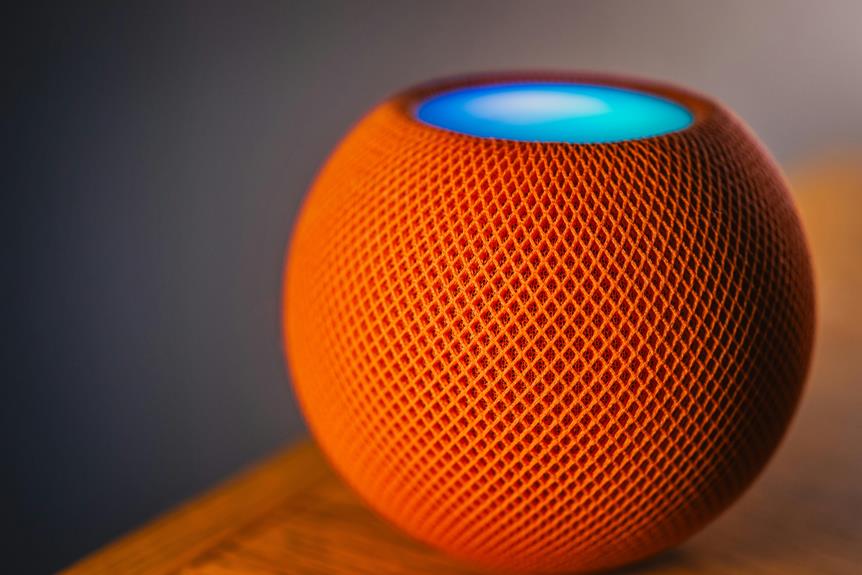
When considering smart speakers across different brands, you might find yourself intrigued by the vast array of features and capabilities each one offers. From Amazon's Echo series to Google Home and Apple's HomePod, the competition is fierce. But which brand truly stands out in terms of performance, sound quality, and overall user experience? The nuances between them might surprise you, influencing your decision in ways you hadn't anticipated.
Brand Overview and History
When considering brand overview and history in the smart speaker market, understanding the background of each company sheds light on their innovations and impact on the industry. One of the key players in this market is Amazon. Founded in 1994 by Jeff Bezos, Amazon initially started as an online bookstore before expanding into a global e-commerce giant. In 2014, Amazon introduced its first smart speaker, the Amazon Echo, powered by the virtual assistant Alexa. This move revolutionized the way people interacted with technology in their homes, paving the way for the smart home ecosystem we see today.
On the other hand, Google, a company known for its search engine, entered the smart speaker market in 2016 with the Google Home. Google's expertise in artificial intelligence and data processing allowed them to create a smart speaker that seamlessly integrated with their other services. With the introduction of Google Assistant, the Google Home quickly became a formidable competitor to Amazon's Echo lineup. This rivalry has been instrumental in driving innovation and improving smart speaker technology for consumers worldwide.
Key Features and Specifications
Comparing key features and specifications across different smart speaker brands offers valuable insights into their unique capabilities and functionalities. When exploring smart speakers, you'll find that each brand has its strengths.
For instance, Amazon's Echo devices are known for their seamless integration with Alexa, enabling voice commands for various tasks. On the other hand, Google Home speakers excel in utilizing Google Assistant for personalized responses and a wide range of compatible smart home devices. Apple's HomePod focuses on delivering high-fidelity audio with its advanced sound technology, making it a top choice for music enthusiasts.
In terms of connectivity, Bluetooth and Wi-Fi capabilities are standard across most smart speakers, allowing for wireless streaming from various devices. Additionally, some models offer features like built-in cameras for video calls, touchscreens for enhanced interaction, and compatibility with multiple music streaming services.
Understanding these key features and specifications can help you choose the smart speaker that best fits your needs and preferences.
Performance and Sound Quality Comparison
To evaluate smart speakers effectively, focus on assessing their performance and sound quality across different brands. When comparing smart speakers, consider factors such as audio output power, frequency response, and overall sound clarity. Brands like Amazon, Google, and Apple each have their own unique speaker models with varying performance capabilities.
Amazon's Echo devices are known for their strong bass and clear vocals, making them suitable for music playback. Google Home speakers offer a balanced sound profile with good voice clarity for smart assistant interactions. Apple's HomePod emphasizes high-fidelity audio reproduction, catering to audiophiles with its detailed sound and spatial awareness technology.
In terms of performance, smart speakers differ in terms of response time, connectivity options, and compatibility with various smart home devices. Amazon's Alexa-powered speakers excel in quickly executing commands and integrating with a wide range of third-party devices. Google Assistant-enabled speakers prioritize seamless integration with Google services and products, enhancing overall user experience. Apple's Siri-enabled HomePod focuses on privacy and security while providing a smooth user interface for Apple ecosystem users.
When evaluating smart speakers, consider your specific needs regarding sound quality and performance to choose the best option for your preferences.
User Experience and Voice Assistant Capabilities
User experience with smart speakers significantly influences their overall appeal and satisfaction levels, impacting how effectively the voice assistant capabilities are utilized. When interacting with a smart speaker, the ease of setup and navigation plays a crucial role in your overall satisfaction. Different brands offer varying levels of user-friendliness, with some providing intuitive interfaces that make it a breeze to control settings and access features.
Voice assistant capabilities are another key aspect to consider when evaluating smart speakers. The responsiveness and accuracy of the voice assistant can greatly enhance your overall experience. Whether you prefer asking general questions, setting reminders, or controlling smart home devices, the effectiveness of the voice assistant can make or break your smart speaker usage.
Additionally, the range of functions supported by the voice assistant affects the speaker's versatility. Some brands may excel in certain areas, such as music playback or smart home integration, while others may offer a broader range of skills and integrations. Understanding your specific needs and preferences can help you choose a smart speaker with voice assistant capabilities that align with your lifestyle.




